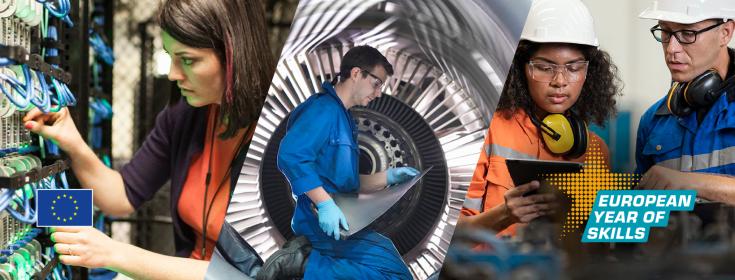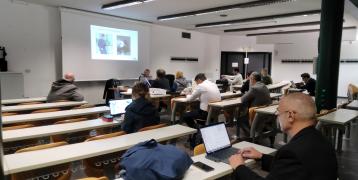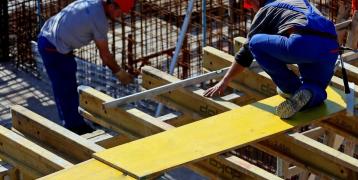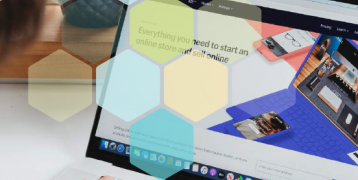Interreg Europe celebrates the European Year of Skills

In 2023, the European Union is celebrating the European Year of Skills. The campaign aims to address the skills gap in the European Union and boost the EU skills strategy. This will help reskill people and will focus on digital and green technology skills.
At Interreg Europe, our projects and Policy Learning Platform have identified and produced a number of resources to improve skills-related policies in the regions.
Skills for the energy transition
If you’re interested in improving the skills of the people in your region for the energy transition, then look no further than our Policy Learning Platform.
Our thematic experts identified and gathered together a series of policy recommendations, strategies and highly transferable good practices on the topic and shared it with our community in this:
- Webinar on jobs and skills for the energy transition,
- And a policy brief entitled ‘Skills for the energy transition’.
Investing in the human factor and developing your region’s skills for energy transition is the only real enabler of the green transformations that lie ahead.
What other topics did we cover?
But that’s not all our projects and Policy Learning Platform have worked on over the years. They’ve also identified good practices and made policy recommendations in the areas of:
- Skills for innovation
- Skills for business acceleration
- Skills in the workplace
- Skills for digital transitions
Scroll through our policy solutions to find the most relevant to you
Policy recommendations by our Platform experts
Good practices identified by our projects
Looking ahead
We approved our new first call projects back in December 2022. Among them, three projects will be working specifically on skills for:
- Business acceleration,
- Smart specialization,
- and social models.
We expect great things to come in the coming years. Bookmark them to stay up-to-date with their progress.
What is the European Year of Skills?
The European Year of Skills aims to address skills gaps in the European Union and boost the EU skills strategy, which will help reskill people with the focus on digital and green technology skills.
This will require helping people get the right skills for quality jobs and helping companies, in particular small and medium enterprises by highlighting national efforts as well as -existing and new EU initiatives and EU funding possibilities. It will support skills-related activities and events across Europe.
The year started on 9 May and will run for 12 months.
Go to the European Union website to see how you can get involved.



















